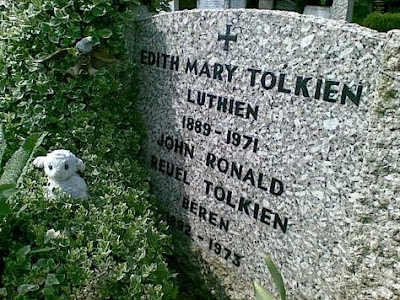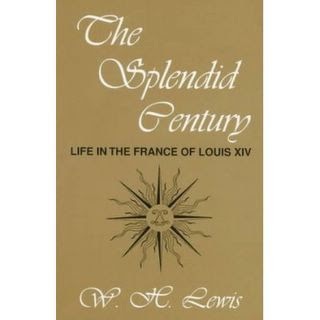.
.
Swann’s partnership with Michael Flanders, his lyricist and fellow performer in the revue At the Drop of a Hat, was a hit on Broadway as well as in the West End. But, although Swann did not disdain the wealth the show had brought them, he felt that there was more to his musical talent.
“He knew a lot of his comic material was ephemeral, even vulgar,” says Leon Berger, the archivist of Swann’s estate. “Yet he was a deeply spiritual man, whose life was a long religious quest.”
What Swann decided that day was to write an opera based on the C. S. Lewis novel Perelandra, a favourite book since his student days at Oxford in the 1940s.
On the face of it, Perelandra is one of the least suitable books for an opera that Swann could have chosen: it is set on an intensely visualised “other world”, which is almost impossible to represent on stage. It has no love interest, and much of the dialogue consists of theological debate.
The book is the sequel to Lewis’s first science-fiction novel, Out of the Silent Planet, in which the hero, Ransom, was taken to the planet Mars. In Perelandra, angels convey Ransom to the planet Venus, wonderfully depicted as a vast water world with a “pure, flat gold sky like the background of a medieval picture”, and vast waves, “first emerald, and lower down a lustrous bottle green”, in which most of the land is floating mats of vegetation.
On one of these “islands”, Ransom meets a beautiful, naked young woman with green skin: the Green Lady, the Eve of this unfallen new world, temporarily separated from her Adam.
Ransom wonders why he is there, but finds out shortly after Weston, the villain of the first book, arrives in a spaceship. It is soon clear that the scientist’s body has been possessed by Satan, and that he has come to tempt this new Eve into committing a first sin, just as he did with the Eve of our world.
The Green Lady does not fall, however — although she weakens, she remains unpersuaded by Weston’s arguments — and Ransom realises that he has to kill the other man to remove the tempter from the planet.
After a long struggle, Ransom succeeds, and Perelandra ends with a cosmic celebration, in which the angel of the planet hands over responsibility for the world to the triumphantly unfallen Green Lady, now reunited with her Adam.
PERELANDRA presented a story as far removed from Flanders’s satiric verse as could be imagined, and, amid the skyscrapers of downtown Manhattan, Swann jotted a postcard to David Marsh, an old friend and occasional collaborator in Oxford: “Can you imagine Perelandra as an opera, or as an operatic oratorio (vocally dramatised theology)? If so, shall we work on it?” Marsh agreed to write the lyrics, and C. S. Lewis happily gave permission.
It took Swann and Marsh four years to complete the opera. They met Lewis a number of times, usually in pubs, to discuss their ideas and to hum snatches of the music to him.
Lewis was so keen about their project that at one point he contributed the words of a song, not found in the novel, to be sung by the King and Queen of Perelandra. Marsh and Swann could not fit it in, however, as Lewis’s style was so different from theirs. In fact, although the libretto follows the narrative of Perelandra faithfully, with only minor changes, none of Lewis’s own words from the novel are quoted directly.
None the less, Lewis was enthusiastic about the work. When he saw the first complete version of the script in May 1962, he wrote to Marsh, in a letter so far unpublished: “Quite frankly, I think it is just stunningly good. It brought tears to my eyes in places. Ransom’s repeated ‘Yes, I’m frightened’ is excellent. The mask on Weston is exactly right, and if anyone can sing the part, bringing out the two voices properly, it will be terrific.”
Lewis was also pleased when he heard a preliminary performance of the opera in the summer of 1963, with Swann and a group of singers accompanied on piano at a country house in Cirencester. But the final version of the opera was not completed until after Lewis’s death, in November 1963.
The first three — and so far the only — performances in the UK took place in the summer of 1964, in Cambridge, Oxford, and London. They were concert performances, because Swann had had to pay for them himself, and scenery and costumes were unaffordable.
THE CRITICS were lukewarm. Swann’s style, drawn from the Romantic composers and folk music, was out of keeping with the atonal or serial music then fashionable. Swann’s and Marsh’s hopes that the opera would be a hit were dashed.
Nevertheless, the pair did not abandon the opera. Having decided that, at nearly three hours, it was too long to be performed commercially, they cut it down to just over two hours, producing the version that had its première in the United States in 1969 by students at Haverford and Bryn Mawr Colleges in Pennsylvania.
This has been, so far, the only attempt to stage the work. The students clothed the Lady in a green body-stocking (nudity on stage in a religious drama would have been too risqué even for the late 1960s), and ingeniously represented the floating world of Perelandra by a plexiglass structure on stage with constantly changing internal lighting.
This time the critics were favourable: both the Wall Street Journal and the New Yorker praised the opera, the latter saying: “It is unashamedly old-fashioned. It represents the Handel-Mendelssohn tradition, which is the tradition of most unselfconscious British music. A few dissonances appear from time to time to designate evil. But most of it is as innocent and sincere as Perelandra itself.”
Despite this modest success, Perelandra was never staged again. But Swann remained deeply attached to the work, and, in the last years of his life, became convinced that the truncated version had been a mistake.
That version had been created by cutting up the original score with scissors and sticky-taping it together; so, in the final weeks of his life, Swann, with his friends Leon Berger and Jonathan Butcher, reconstructed the original. “It was like putting together a huge jigsaw puzzle,” says Mr Berger, who adds that it was Swann’s “dying wish that it should be performed”.
There did not seem to be any chance that it would be. The film rights to the novel had been sold to Hollywood shortly after Lewis’s death, and, despite the one exception that had been granted for the student performance in the US, this sale blocked further performances of the work.
THEN, LAST SUMMER, 14 years after Donald Swann’s death, Mr Berger gave a talk to the Oxford University C. S. Lewis Society about the opera. “I managed to scramble together a few sound-clips of the piece,” he says, “and I remarked that no decent recording of the opera exists.”
The president of the society at the time, Judith Tonning, a postgraduate theology student, had invited Mr Berger to speak after she learned of the existence of the opera. “When the Society heard the clips, though the recording quality was miserable, many of us were touched,” she says.
Ms Tonning and the society’s acting secretary, Brendan Wolfe, a patristics postgraduate, decided to mount a performance of the opera, and have it properly recorded using modern technology. The enthusiastic co-operation of Mr Berger and the Donald Swann estate, and the consent of the David Marsh estate and the C. S. Lewis estate (to which the film rights had reverted), meant that the project finally got under way.
OWING to the society’s limited resources, a staged performance was out of the question, and even a decent concert performance was a huge challenge. Nevertheless, soloists, a choir, and an orchestra have been recruited. Mr Butcher, the founder and musical director of Surrey Opera, will be the musical director of Perelandra.
Two of the original cast from the 1964 production, Neil Jenkins and Rupert Forbes, will once again sing the cameo roles of C. S. Lewis and his doctor friend Robert “Humphrey” Harvard. The Green Lady will be sung by the soprano Jane Streeton, and Ransom by the Norwegian baritone Håkan Vramsmo.
Mr Berger, a professional opera-singer himself, is relishing the challenge of taking on the role of Weston. “He has the most angular music,” Mr Berger says, “and also the most fiendish rhythms. Also, I can’t turn him into a pantomime villain — he has to appear reasonable.”
Mr Berger believes that the opera is musically, as well as theologically, fascinating: “Donald was trying to find a musical language which combined old-fashioned Romanticism with a more modern conversational style of music.”
Yet he acknowledges that the opera’s true merits will not be apparent “until we’ve actually stood up in front of an audience and presented it. At the end of June, all of us, performers and audience alike, are going to be taking a voyage into the unknown.”
Perelandra will be performed on 25 June at 7 p.m. in Keble College Chapel, Oxford, and on 26 June at 7 p.m. at the Sheldonian Theatre, Oxford. Tickets, ranging from £8 to £37, are available through the project website; from Tickets Oxford; or from Oxford Playhouse, phone 01865 305305. An international colloquium on Perelandra, for which a few places are still available, will accompany the performance run.
http://www.perelandraproject.org/http://www.ticketsoxford.com/Jennifer Swift
‘Church Times’ ~ Issue 7631
[19th June 2009) Planet Narnia - July 2 7.30pm, Tickets £3 (SO Friends Free) C.S. Lewis, author of the Chronicles of Narnia, was an Oxford scholar with an extensive knowledge of 16th Century Literature. But he also studied developments in science, and wove early theories of astronomy into his books. Dr Michael Ward will explore the evidence and will be signing copies of his book "Planet Narnia”.
Planet Narnia - July 2 7.30pm, Tickets £3 (SO Friends Free) C.S. Lewis, author of the Chronicles of Narnia, was an Oxford scholar with an extensive knowledge of 16th Century Literature. But he also studied developments in science, and wove early theories of astronomy into his books. Dr Michael Ward will explore the evidence and will be signing copies of his book "Planet Narnia”.




















